Village without a signboard
It’s a warm, sunny spring day. A middle-aged man is pottering around in his garden. With a shovel in hand, he is diligently ploughing the land around an apple tree. Upon seeing us, he hangs up his gloves on a metal fence and invites us into the house.
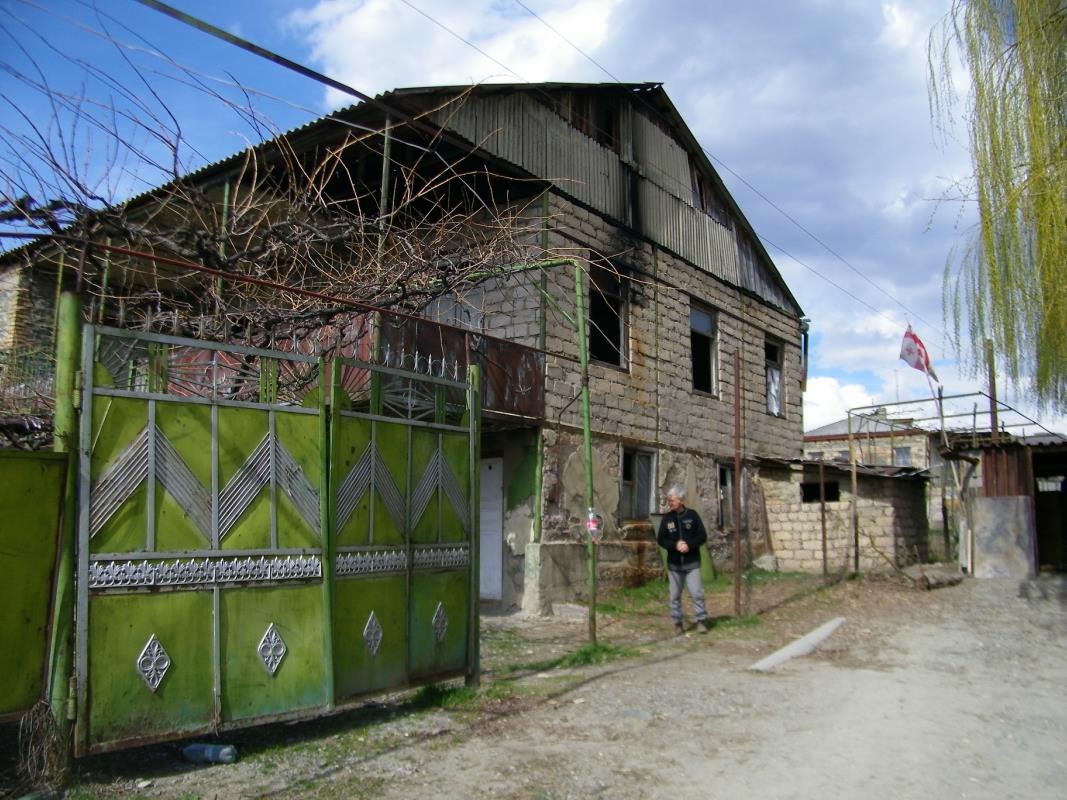
We open the paint-scrubbed green gate and enter the yard. It’s a double-storey house, with a wide, half-ruined balcony and glassless windows. The roof is all blackened by either soot or fire flame, the walls are crumbling, the flooring is damaged here and there. There are fragments of furniture and some household items scattered around–a kettle handle, a plate fragment, a chair back. Once there was nice wallpaper on the wall, with a pink flower. Whereas now, there are only scraps left.
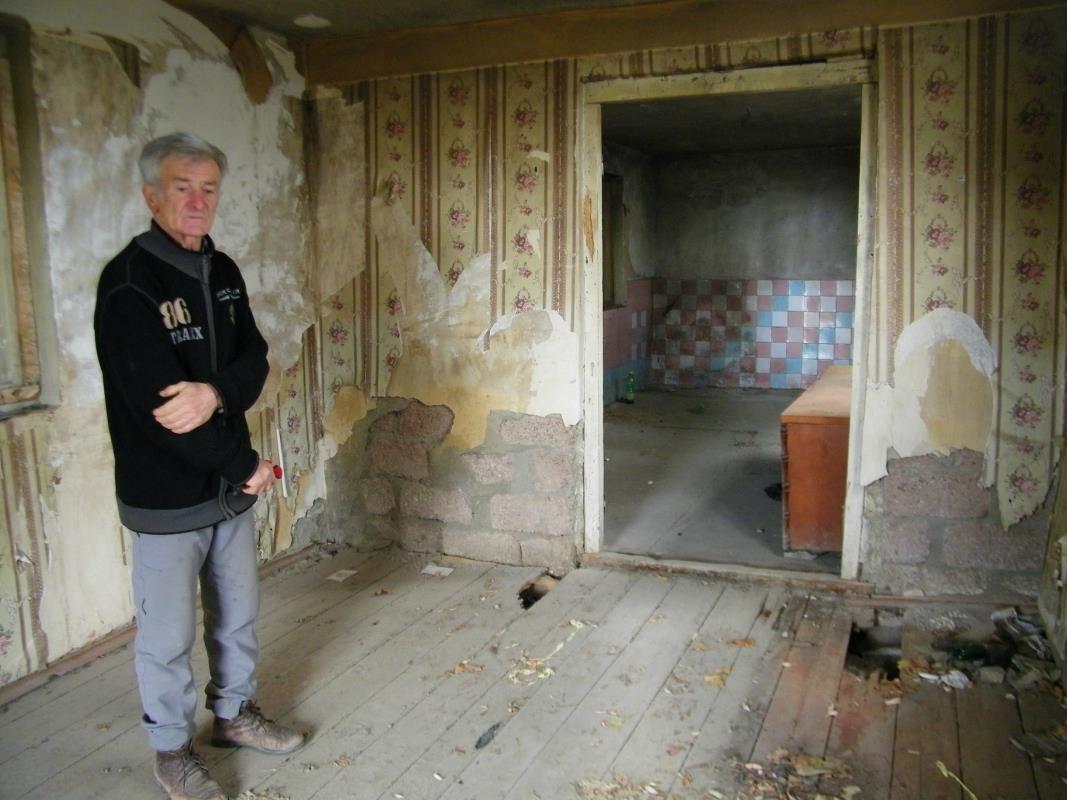
’We find bullet shells here from time to time’ -the host tells us and continues seeing us around the ruins of his house.
There is only one habitable room in his huge house. A small table, a chair, a wall drawer, a bed and a wood heater could hardly fit into the 4 square meter area.
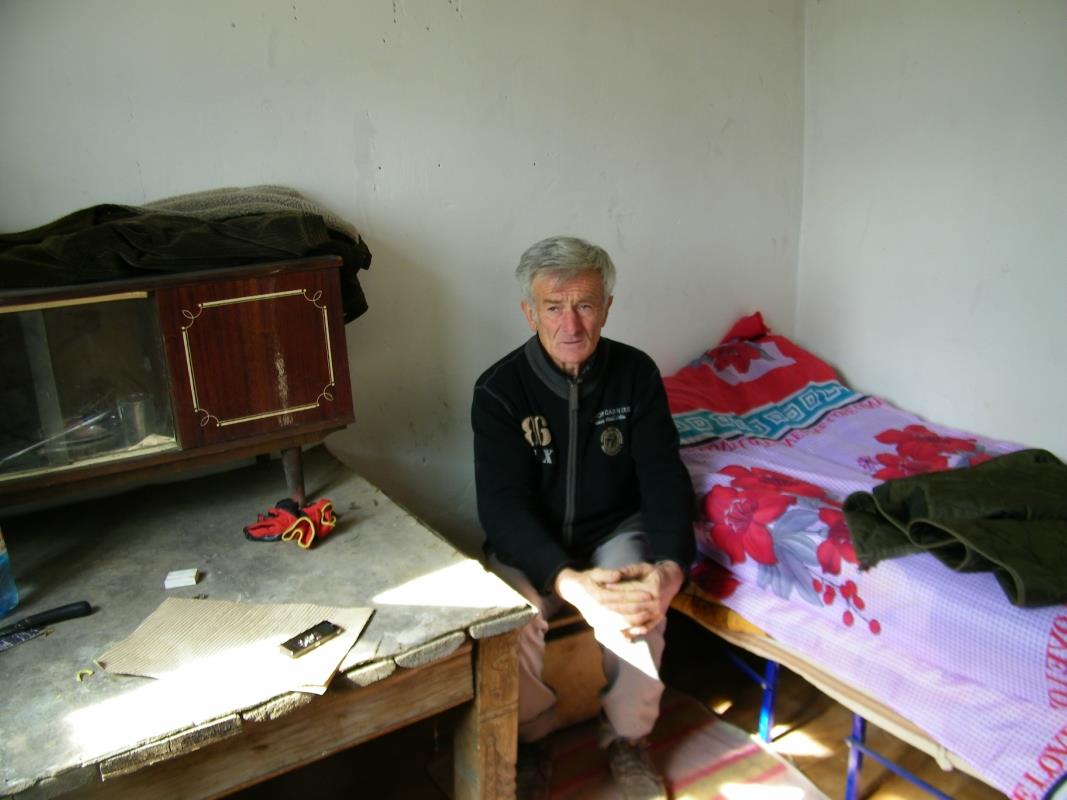
Taziashvili Tariel and his wife,Mary, live in this small room of the huge house.
This is a conflict zone. Zardiaantkari village.
Once you pass Marana village, a paved road turns into one filled with potholes–it makes you understand that you are driving to Zardiaantkari village-a village with no signboard.
Zardiaankari is a border village of the de facto South Ossetia. It is populated by ethnic Georgians and Ossetians.
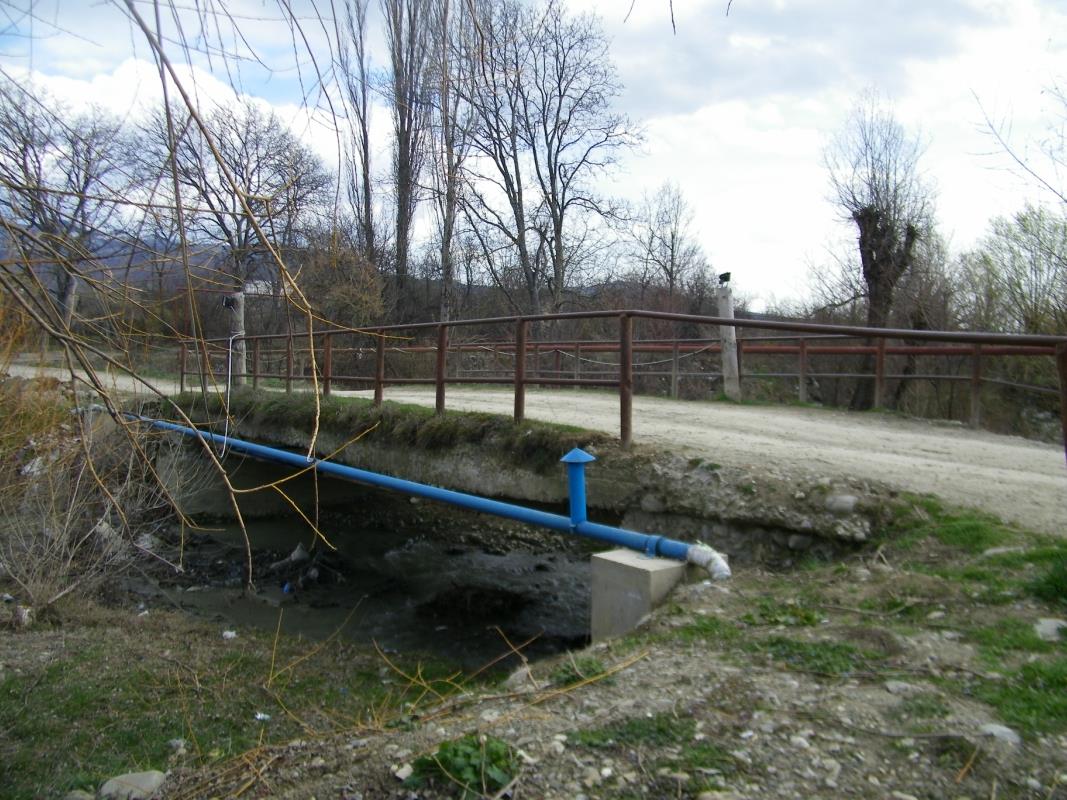
During the August war in 2008, almost the entire population abandoned the village. After the war, the Zardiaantkari village was referred to as a buffer zone. Though it is officially under control of the Georgian side, it is, however, in fact, controlled neither by Russia, Ossetia nor Georgia. The local Georgian population could not return to the village until 2012, when a Georgian checkpoint was established there.
Today, 25 families in this village are currently living between the two checkpoints: there is a Russian-Ossetian checkpoint at the village entrance and a Georgian police checkpoint at the exit.
For two years, the Georgian checkpoint was stationed in Tariel Taziashvili’s tumble-down house so that nobody even asked for the house owner’s permission. Law enforcement left the house some time ago, arranging the checkpoint at his yard wall. And the Georgian flag is now waving there.
Though Georgian law enforcers’ appearance in the village created certain security guarantees, but the population, who have returned to their homes, don’t have even fundamental living conditions.
Like in many other villages, the population in Zardiaankari is facing water shortage.
In the region, where people earn their living from agriculture, the lack of water brings huge economic losses.
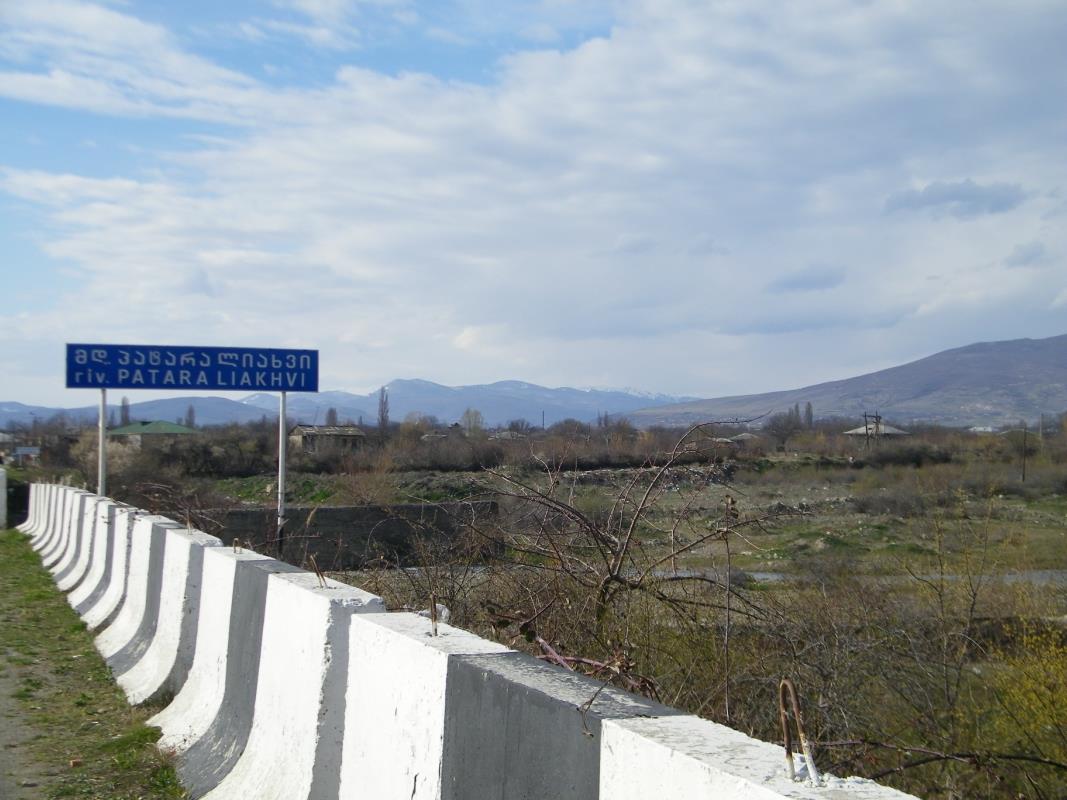
There is only one drinking water well in Zardiaantkari, which was installed a few years ago. A drinking water reservoir will finally be erected this year. The water is pumped here from a well and then supplied to the village. The water quality does not meet standards, though people, who were longing for water for years, do not complain much about it.
The population is supplied drinking water through rubber pipes on schedule, that is, once every two days.
The irrigation issue also remains unresolved. Therefore, apples and peaches are no longer cultivated here.
’I don’t know, what the outcome of my labor will be…Is there any sense in doing so many chores and struggling to reap products from the land? But then I think, what if suddenly the irrigation water is supplied and my land is not ploughed. That can’t be good, can it?’ he says.
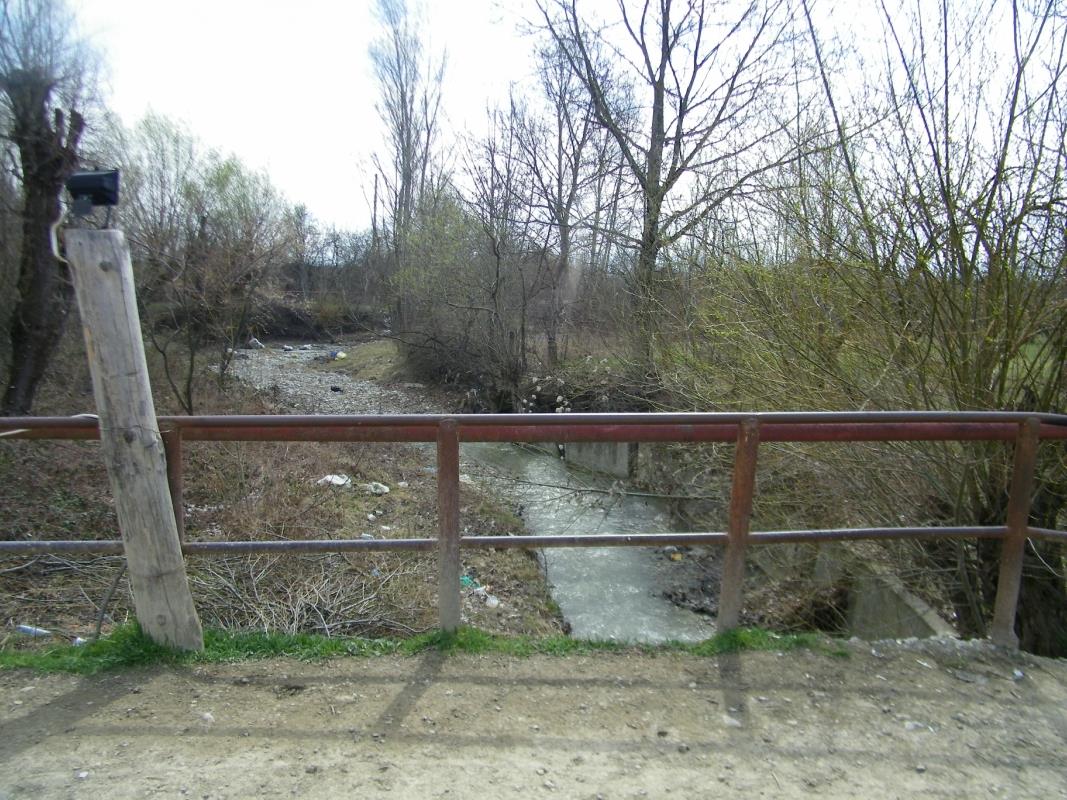
Electricity transmission lines in the village, which had the power cut off, were restored only in 2013. The natural gas pipeline has been laid in the village this year. However, not everyone can enjoy these niceties of life. For example, Tariel Taziashvili’s house is damaged so badly, that he was refused to allow the gas pipes to be installed. He was told it was dangerous.
Rehabilitation of the damaged houses is another pressing problem here. Most of the houses were damaged during the hostilities.
Since Zardiaantkari officially remained under control of the Georgian side, the villagers were not granted refugee status. No funds were allocated for the rehabilitation of their houses either.
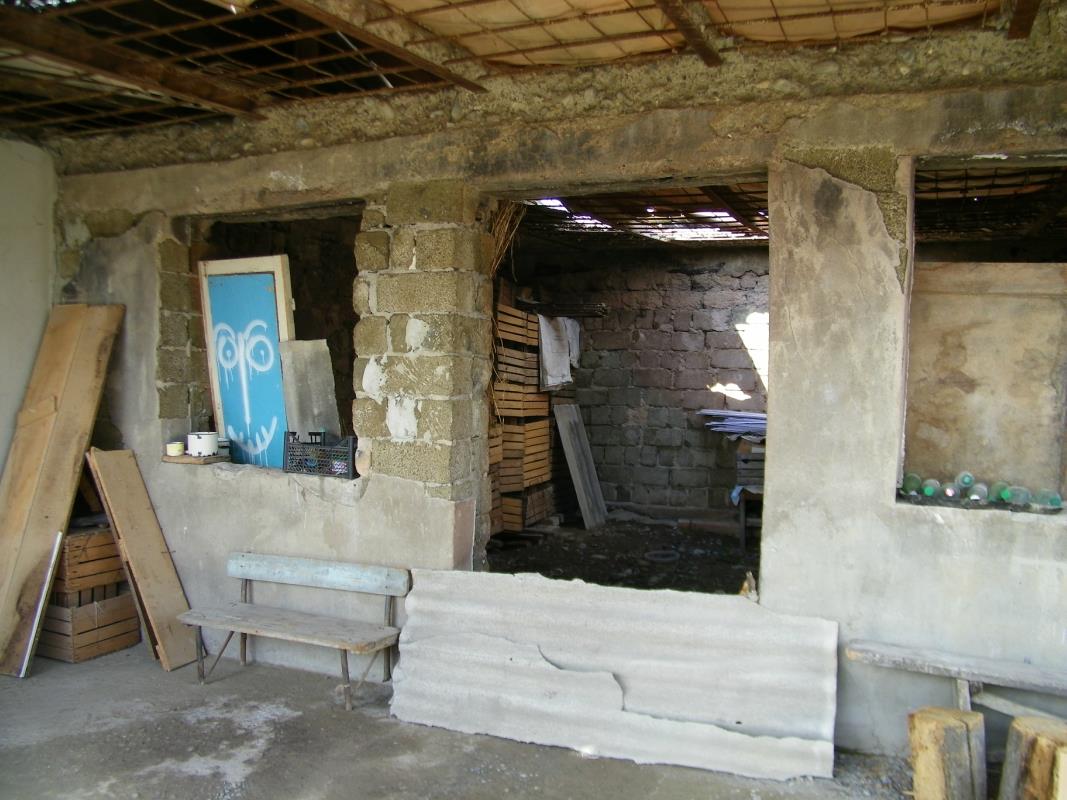
Tina Gablishvili is a resident of Zardiaantkari village. She has a single-storey house that is divided in two. One part of it is burned, and the other side is suitable for living. In 2008, Tina Gablishvili’s house was burned down right in front of her eyes.
She points to the place where she and her husband were hiding. She was not compensated for her burnt down house. She was told she was not entitled to any compensation because the house was not burned down completely.
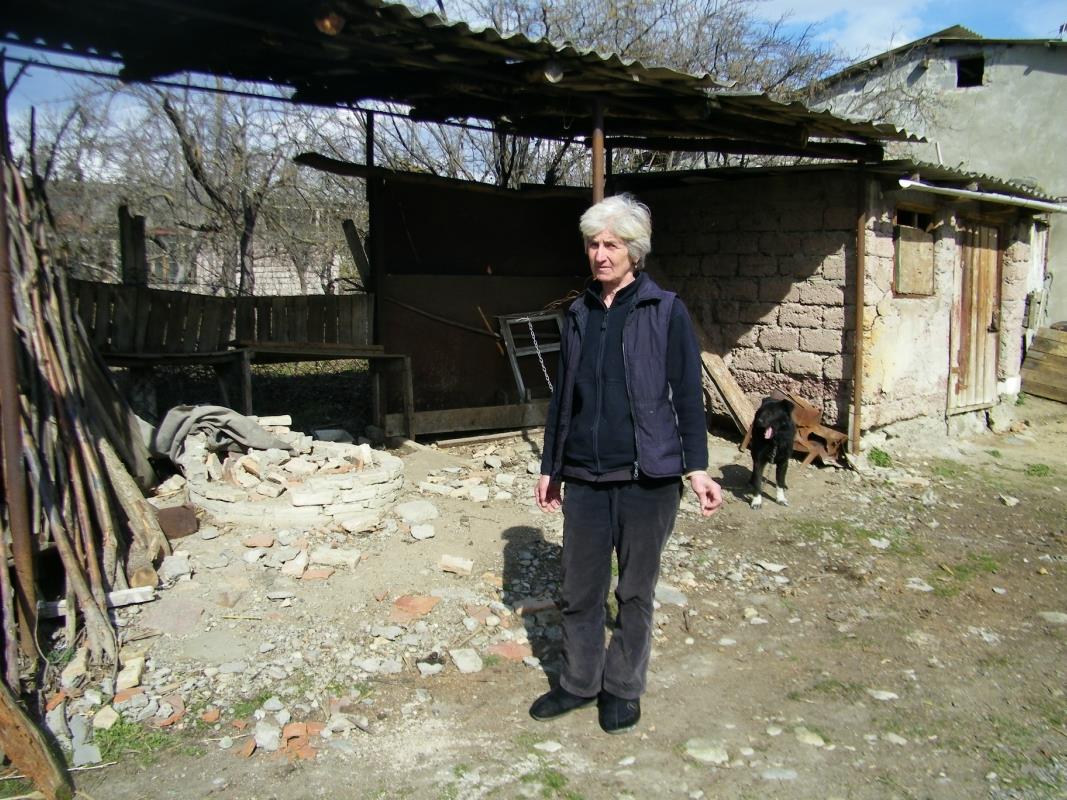
Tina Gablishvili’s husband died two years ago, and her son is in prison now. Her health is deteriorating, her hands are trembling and she cannot afford to buy medication.
She is concerned because spring has started pumping water, and her yard is not in order:
‘Do you see that land plot? How can I till it alone? Or how shall I irrigate it afterwards? There is no water in the village. I don’t know how I will survive next winter, what I will eat…Look how dirty the drinking water is!’ Tina tell us, opening the tap, but nothing comes out from the rubber pipe.
There are primarily senior citizens left in the village. Young people either live in the kindergarten building, in Gori, or have gone to Tbilisi for to earn a living. Not everyone who has returned to Zardiaantkari is entitled to the government’s allocated social benefits. Pension is the only source of income for them.
It took Tariel Taziashvili many years to build this house, which now looks more like ruins. It was his father who laid the foundation for it and then continued building it. However, when the construction was finished and they were supposed to start a new life, the conflict began.
Now he dreams of restoring the destroyed house for his grandchildren. He has appealed to different organizations for the assistance, but all in vain.
The Public Defender’s Office has been also dealing with Taziashvili’s house case. The Public Defender’s Office has appealed to the Interior Ministry with the instruction to restore the house.
’For two years, my house served as a police checkpoint. And what had been half- ruined, was completely destroyed during the hostilities. However, they now refuse to restore the house,’ says Taziashvili.
When speaking about the future, his voice becomes sad and hopeless. Pleasant memories are associated only with the communist era, with the time when he was young; he had a job and there was no conflict in sight.
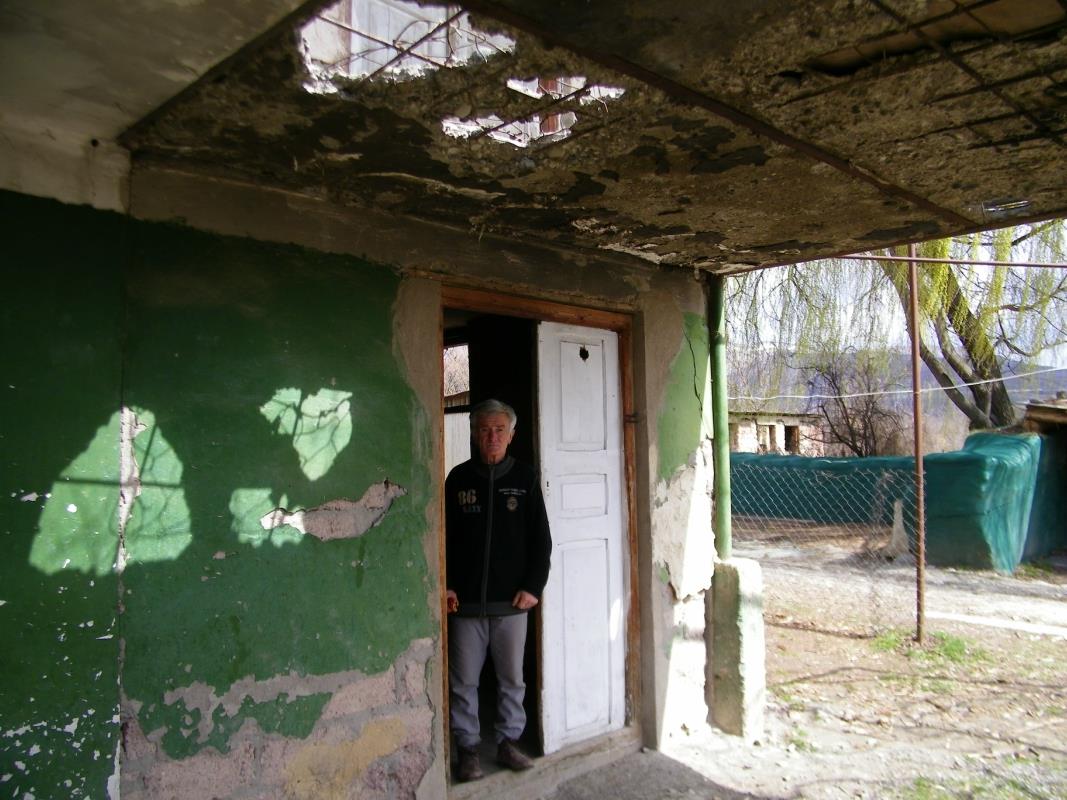
’It was a good time. The borders were open. Whereas now, everyone is needy and life has become depressive. It would be good if trade relations were established with Europe and the borders were opened. We are sort of locked in now; there is no way out. If we were allied with Europe, with such huge countries, Russia would not dare do anything to us. Otherwise, Russia is a great threat to us. Their people cannot be relied upon. As for our local Ossetians, they are good people, with whom we have grown up side-by-side.’
The opinions, expressed in this article convey the author’s views and terminology do not necessarily reflect the views or opinions of the editorial staff.
Published on: 31. 03. 2016



















